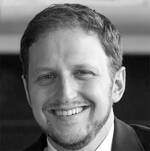Author Interviews, Brigham & Women's - Harvard, Schizophrenia, Sleep Disorders / 18.10.2022
Brain Waves Form Unique “Fingerprint” For Each Person
MedicalResearch.com Interview with:
Michael J. Prerau, Ph.D.
Assistant Professor of Medicine,
Faculty, Division of Sleep Medicine
Harvard Medical School
Associate Neuroscientist and
Director of the Neurophysiological Signal Processing Core
Division of Sleep and Circadian Disorders
Department of Medicine Brigham and Women's Hospital
MedicalResearch.com: What is the background for this study?
Response: The brain is highly active during sleep, which makes it an important, natural way to study neurological health and disease. Scientists typically study brain activity during sleep using the electroencephalogram, or EEG, which measures brainwaves at the scalp. Starting in the mid 1930s, the sleep EEG was first studied by looking at the traces of brainwaves drawn on a paper tape by a machine. Many important features of sleep are still based on what people almost a century ago could most easily observe in the complex waveform traces. Even the latest machine learning and signal processing algorithms for detecting sleep waveforms are judged against their ability to recreate human observation.
In this study, the researchers asked: What can we learn if we expand our notion of sleep brainwaves beyond what was historically easy to identify by eye?
(more…)

